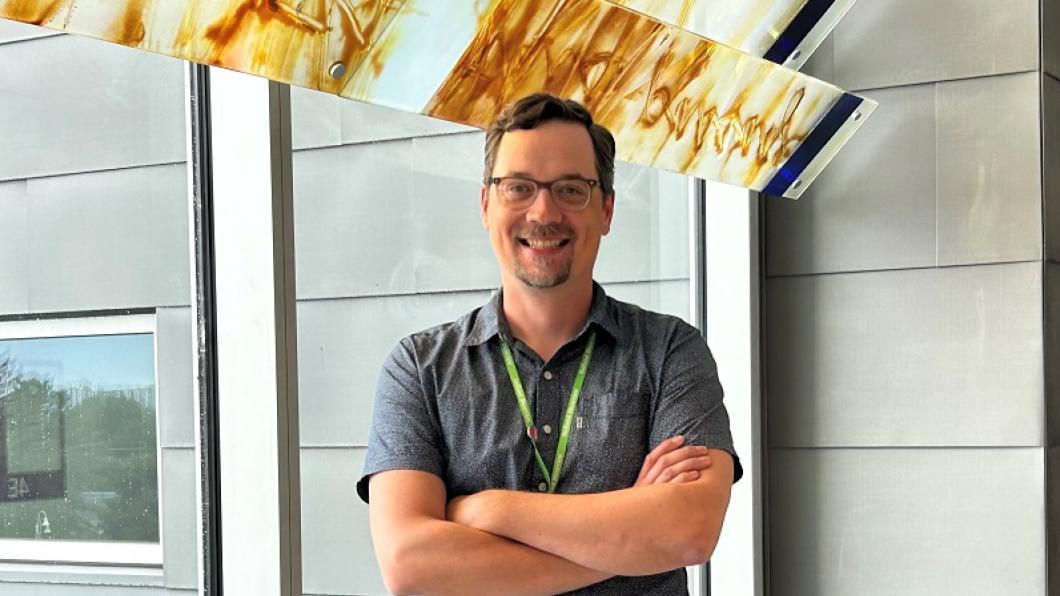
Dr. Jacob Ellegood named as the Bloorview Research Institute's new neuroimaging scientist
If it wasn’t for an astrophysics course that Dr. Jacob Ellegood took while studying at University of Alberta, he might have chosen a career teaching physics.
Instead, his astrophysics professor introduced Dr. Ellegood, then a young graduate student in his 20s, to the world of research.
“Professor David Naylor always talked highly about MRIs because one of the ways he looks at space is similar to the techniques we use to look at the [human] body. He introduced me to what research could be and I kind of fell in love with it there.”
Fast forward 15 years later. Dr. Ellegood, who has been working with MRIs since he was 22, will be the Bloorview Research Institute’s new neuroimaging scientist, a role that he says, ‘has been one of the aspirations of his career.’ His appointment will begin on August 1.
As the institute’s neuroimaging scientist, Dr. Ellegood will lead a stellar program of research and build up BRI’s reputation in MRI research and childhood disability and developmental differences to create meaningful and healthy futures for children, youth and their families.
“Jacob brings his vast amount of skills, talent and experience in neuroimaging research experience to facilitate Bloorview Research Institute’s commitment to co-develop ground-breaking and individualized pathways for neurodivergent children and youth,” says Dr. Evdokia Anagnostou, vice president of research and director of the Bloorview Research Institute. “His focus on precision health and equity-driven MRI research aligns perfectly with our key BRI strategic priorities in these key areas and will be critical in enabling personalized versions of a good life for clients and their families.”
Indeed, for the past 15 years the scientist has been working to advance the understanding of heterogeneity across and within individuals with neurodevelopmental disorders to implement precision medicine approaches and inform personalized solutions. In his research work at the Hospital for Sick Children, he has been working with mice models of neurodevelopmental conditions to gain early insights on the many ways atypical development takes place in the brain. Over the last year, he has been integrating such insights with brain imaging data from neurodivergent children and youth to develop pathways that allow for tailored approaches to intervention that meet each child’s unique needs.
Dr. Ellegood will continue with that work in his new role, but also look more broadly to collaborate with scientists and clinicians to facilitate precision health solutions using neuroimaging that lead to better health outcomes for children and youth with disabilities and developmental differences.
He also aims to address the inequities in large-scale MRI databases by helping to both “rescue” imaging data that has traditionally not be included in analyses but also increase research MRI access to young children living with disabilities and other individuals from structurally disadvantaged groups so that these groups are more fully represented in data collection for studies. Indeed, BRI’s child-friendly, fully accessible, and customizable research MRI suite, has been designed so that Dr. Ellegood accomplish this goal by making research MRI experiences more accessible for children with disabilities and even fun.
Dr. Ellegood’s passion for research also extends into the classroom. For the past four years, he has taught neuroscience courses at the University of Toronto and has also worked with several students in the recent Ward Family Summer Family Student Research Program. In his new position, he is interested in increasing neuroscience literacy by creating new educational opportunities for students such as creating a spring camp in neuroscience. It can also be a pathway to introduce students neuroscientists to a new career.
“You don’t learn [neuroscience] in high school. You do biology but you’re not learning about the brain until you get to university. I would love to get students excited about neuroscience and neuroimaging early as a way to encourage students to study this field as a possible career.”
Most of all, he’s looking forward to collaborating with many of the other scientists to find ways to include the MRI in their research that they may not have thought of.
“One of the most exciting priorities for me is working with all the researchers and clinicians here at Holland Bloorview. I can offer both my own research but also a collaborative space where we can work together to further their goals and enable personalized versions of the best life for children and youth as well as their families.”